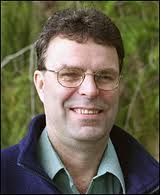 A Tuesday morning in Nanaimo and the fog is thick. I am headed to Saskatoon to speak at the Saskatchewan Young Ag-Entrepreneurs/ Canadian Association of Farm Advisors conference. The heavy fog leads to a series of flight delays, turning what should be a seven hour trip into a 25 hour saga. Sleep deprived, I arrive in Saskatoon and step out of the airport into bright sun and -35 degrees Celsius. Brrrrr. Still lots of time to get to the conference for tonight’s talk. After checking in and dumping my suitcase and computer in my room I go downstairs and meet the conference organizers. A large crowd of agriculture professionals fills the room.
A Tuesday morning in Nanaimo and the fog is thick. I am headed to Saskatoon to speak at the Saskatchewan Young Ag-Entrepreneurs/ Canadian Association of Farm Advisors conference. The heavy fog leads to a series of flight delays, turning what should be a seven hour trip into a 25 hour saga. Sleep deprived, I arrive in Saskatoon and step out of the airport into bright sun and -35 degrees Celsius. Brrrrr. Still lots of time to get to the conference for tonight’s talk. After checking in and dumping my suitcase and computer in my room I go downstairs and meet the conference organizers. A large crowd of agriculture professionals fills the room.
I try to listen to a speaker but I am exhausted. Perhaps a nap will help. Having missed the first day of the conference I decide to mingle with a few farmers over a beer before dinner.
We had great conversations as I do every time I get to sit down with farmers. My conversation with an organic farmer was great. No name calling or accusations of being a Monsanto shill, just a good back and forth about real issues in agriculture. This sure is different from the debates on-line with organic activists (not to be confused with organic farmers). I mention the book “Tomorrow’s Table” as a good read that explains how organic agriculture and GE (genetically engineered) crops have far more in common than different. All farmers want to grow healthy food with minimal impact on the land. Every real farmer I have ever met wants to practice sustainable agriculture. There is more than one way to do it.
Next I sit down with some canola farmers and we discuss disease issues. I learn a great deal. I tell them about the first year of the neonic ban in Europe and its devastating effect on the UK canola (they call it rapeseed over there) crop. The irony is thick. The huge flee beetle problem results in the UK government authorizing neonic spraying to try help save the canola crop. Instead of pest specific seed treatment the EU wide neonic ban results in non-specific spraying neonics on the fields. (We have recently learned the supposed science that was used to argue for the neonic ban was gamed and by activist scientists in Europe. What will happen in year two of the ban? The European example demonstrates how junk science influencing public policy results in bad public policy.
Dinner was awesome, love prime rib every time. Time to speak with the whole conference.
In a blink I am done. This audience is already very aware of the benefits of GE crops. I tried to focus on the multi-billion dollar fear campaign directed against conventional agriculture. I am sure everyone in the room knows some about the fear campaign directed against their livelihood. Hopefully I have convinced the audience they need to get involved in the public debate about conventional agriculture and GE crops specifically.
Food has become important to the public in ways it never was in decades past. The public wants to know far more about their food then they ever have. The public wants to hear from farmers about how and why the farmers grow food with certain procedures. Farmers are well respected by the vast majority of the public in spite of the fear campaign directed against conventional agriculture.
The Q&A (always my favorite part of any talk) is great, with discussions about how to get involved. I suggest letters to the editor, op-eds, call-ins to radio shows, tweets, blogs and conversations over a coffee at the local coffee shop are all great ways to tell the public what farmers know about GE crops and why they grow them. The fear campaign against conventional agriculture in general and GE crops specifically is not going away anytime soon. It is very important for farmers to get involved in the debate. Farmers have the science, history and real world experience on their side. The public is crying out for good information in the sea of false information on food and food production. Farmers need to tell their story.
The fear campaign is having real impact in public policy. The recent Ontario government policy to potentially severely restrict neonic use starting in 2017 is a prime example. If farmers want to be able to use the best technology in the future they need to get involved in the debate so policy makers get accurate information. Farmers know the truth about agricultural technologies from daily use on their farms. If farmers remain silent, activists’ fear campaigns, based on false information, will limit technology. The same technologies that have made farmers in North America the most productive, most sustainable farmers in the world may disappear. It is not an exaggeration to say the future role of technology in agriculture is at risk. I am a very direct speaker and there is no doubt this is clear to the conference participants. I sleep very satisfied with the evening conversations. How did I get home? That’s a story for another blog.
Robert Wager is a faculty member at Vancouver Island University